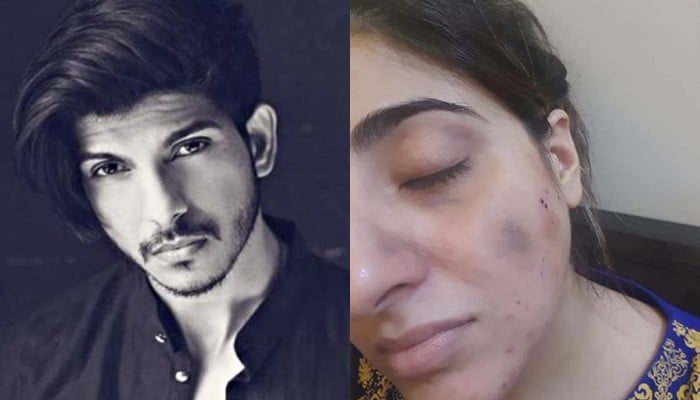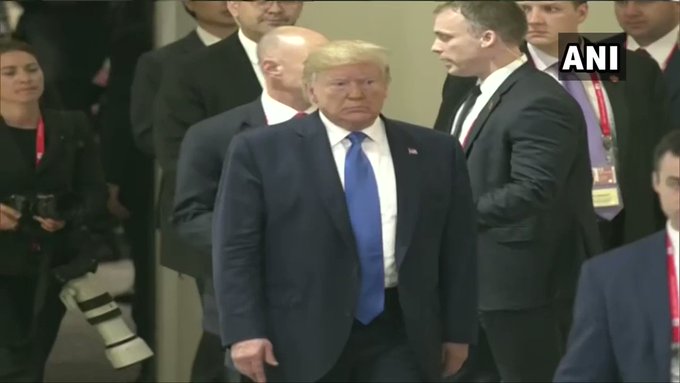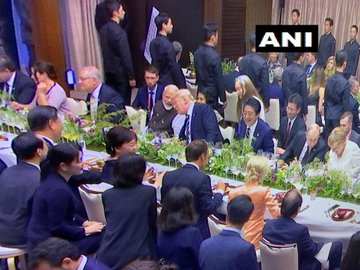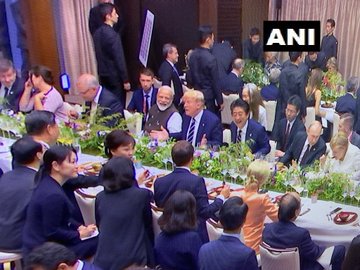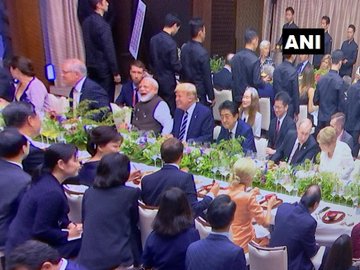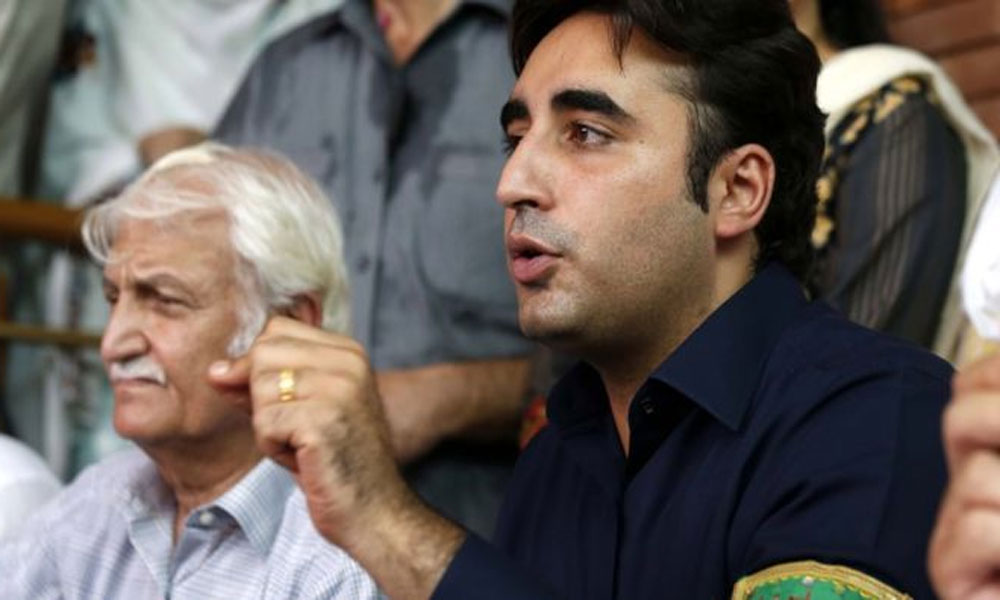M WAQAR..... "A man's ethical behavior should be based effectually on sympathy, education, and social ties; no religious basis is necessary.Man would indeed be in a poor way if he had to be restrained by fear of punishment and hope of reward after death." --Albert Einstein !!! NEWS,ARTICLES,EDITORIALS,MUSIC... Ze chi pe mayeen yum da agha pukhtunistan de.....(Liberal,Progressive,Secular World.)''Secularism is not against religion; it is the message of humanity.'' تل ده وی پثتونستآن
Tuesday, July 23, 2019
Video Report - The New Silk Road, Part 1 & 2: From China to Pakistan | DW Documentary
The New Silk Road, part 2: From Kyrgyzstan to Duisburg | DW Documentary
#Pakistan - Fatema Sohail says women 'afraid' to speak of abuse due to financial dependence on husbands
Fatema Sohail, the wife of Pakistani actor Mohsin Abbas Haider, whom she accused of cheating and domestic abuse, said Monday she was "getting so many messages from women saying that they’re going through similar situations".
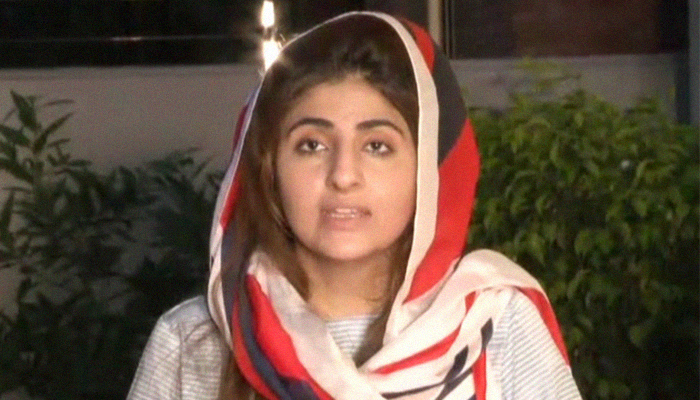 Sohail spoke to the media following a visit to the local police station. She talked about how the case had changed for her because it was not just herself that she was fighting for but other women as well.
Sohail spoke to the media following a visit to the local police station. She talked about how the case had changed for her because it was not just herself that she was fighting for but other women as well.
"The women told me ‘we did not — we still don't — have the kind of courage that you have but we're living with abusive husbands who beat us very often’," she said.
"I sort of went into shock because I [spoke up and] was going to fight for my child's rights but this is so prevalent … this is something else. I’m now fighting for my women as well. Take a stand, come out, and speak up!
"God is the one who takes care of us all. These women are often financially weak, they think ‘who will take care of me, who will take care of my children?’," she noted.
Fatema Sohail further underlined that "these women are afraid" of being utterly financially dependent on their husbands and "it’s worrisome".
She urged the women who were facing domestic abuse and violence to take a step forward. "Please come out and speak up. Women have said to me they want to soak up but I’m not sure if they would actually be able to or not. They just have the same fear — being financially weak.”
Later, outside the police station, she said she was going to stay determined about her application. "Whatever they asked, I'm telling them," she noted.
However, she said: "The FIR [first information report] is still not being registered. I don't know what the reason behind this is or if there is any kind of pressure from somewhere but the FIR was not registered."
In response to a reporter's question about how she should have a medical test done in order to file the FIR on the basis of a subsequent report, Sohail said: "I have told you over and over again that the pictures I shared on social media were from 2018 and in the four years of my marriage, I was abused often.
"I never had the intention to come out in the public" about this. "I couldn't open my mouth because he slapped me so hard," she said.
#Afghanistan asks for explanation after Trump claims US could wipe it 'off the face of the Earth'
By Veronica Stracqualursi
Afghanistan has demanded the United States clarify remarks made by President Donald Trump, who said the country "would be wiped off the face of the Earth" if he wanted to win the war in Afghanistan.
"The Afghan nation has not and will never allow any foreign power to determine its fate," Sediq Sediqqi, the spokesman for the President of Afghanistan, said in a statement. "Given the multifaceted relationship between Afghanistan and the United States, the Government of the Islamic Republic of Afghanistan calls for clarification on the US President's statements."
Trump on Monday had suggested that he could put an end to the Afghanistan war in a week, but that it would cost millions of lives and wipe the country "off the face of the Earth."
"If we wanted to fight a war in Afghanistan and win it, I could win that war in a week. I just don't want to kill 10 million people," Trump said, seated beside Pakistani Prime Minister Imran Khan at the White House on Monday. "I have plans on Afghanistan, that if I wanted to win that war, Afghanistan would be wiped off the face of the Earth. It would be gone. It would be over in -- literally, in 10 days, and I don't want to do -- I don't want to go that route."
The US has been pursuing a diplomatic strategy to end the 18-year war in Afghanistan, holding on-again, off-again talks with the Taliban in Qatar to reach a peace deal. Earlier this month, a group of prominent Afghans —including some Afghan government officials acting in a personal capacity — held two days of joint talks with the Taliban, unofficially agreeing on a roadmap on how they might reach a peace deal.
Despite the breakthrough, attacks have continued since then, including a suicide bombing at a wedding, a car bombing outside Afghanistan's Kandahar City police headquarters, and a deadly explosion outside the gates of Kabul University.
The US is hoping Pakistan can help push the Taliban to directly meet with the Afghan government.
US Secretary of State Mike Pompeo said last month that the US is prepared to remove American troops from Afghanistan, but has not agreed on a timeline. Pompeo said he "hopes" a deal will be reached by September 1, ahead of the Afghan presidential elections later that month.
The Afghan government was the second country since Monday to push back against Trump's remarks made during that Oval Office meeting with Khan.
Trump had claimed that India's Prime Minister Narendra Modi personally asked him if he would like to be a mediator in the decades-long conflict between India and Pakistan over the Kashmir region.
A spokesman for India's Ministry of External Affairs, Raveesh Kumar, denied Trump's claim, saying on Twitter that "no such request has been made" by Modi.
In #Pakistan, a Feminist Hero Is Under Fire and on the Run - Gulalai Ismail
By Jeffrey Gettleman
Gulalai Ismail is one of Pakistan’s best-known women’s rights crusaders, speaking out about forced marriages, gang rapes and crushed dreams.
Her groundbreaking work has carried her around the world, winning her awards and audiences with high-powered women such as Michelle Obama and Queen Elizabeth II.
But in her own country, Ms. Ismail has become an enemy of the state, accused of inciting rebellion. And now she is on the run.
For two months, practically no one has seen her. Pakistan’s security services, known as among this region’s most cunning and brutal, can’t find her. They have raided her house several times and deployed scores of officers, and, according to Ms. Ismail’s family, abducted and tortured family friends to extract information.
Her associates said Ms. Ismail, 33, is leading a phantom-like existence, shifting from house to house, timing her movements carefully, stepping out only with a scarf over her face and relying on an underground network of fellow feminists across Pakistan’s cities who are risking everything to hide her.Her family says they have had no contact with her since she vanished in May — “All our phones are bugged,” said her younger sister, Saba.
Rumors keep surfacing that she was spotted here or arrested there. But security officials said that she was not in custody and that they were relentlessly pursuing her.The hunt has continued even though Pakistan has recently presented itself as turning a corner, moving away from years of repression and a long record of sponsoring militant Islamic groups.Its prime minister, Imran Khan, held talks on Monday with President Trump at the White House (mostly about Afghanistan). To sweeten the mood ahead of Mr. Khan’s visit, Pakistan stepped up arrests of militant leaders and tried to ease tensions with its archrival, India.
But as Ms. Ismail’s case shows, many Pakistanis still live in deep fear of their own security services. The intensity of the pursuit reveals how domineering and perhaps unnerved the country’s security services — referred to as “The Establishment” — remain.
“We are in a gray area,” said Rasul Bakhsh Rais, a professor of political science at Lahore University of Management Sciences. “There’s a lot of actual and political chaos in this country right now.”
But, he said, he could not see any legitimate reason to go after Ms. Ismail.
“What she has been saying, however harsh, falls under freedom of expression,” Mr. Rais said. “But the institution she has talked about doesn’t want to be talked about.”
That institution, he said, was Pakistan’s military.
Pakistani security services have accused Ms. Ismail of a litany of serious offenses including sedition, financing terrorism and defaming state institutions, though the authorities have not filed formal charges against her.No Pakistani government official agreed to comment publicly on her case, but several spoke on the condition of anonymity. Her family provided more than a dozen pages of documents, including police reports and copies of the allegations against her.
The Pakistani officials said they had no issue with Ms. Ismail’s advocacy for women. But they maintained that she had crossed a line in recent months by spreading divisive messages at unlawful rallies held by a grass-roots Pashtun rights movement known as P.T.M.
As P.T.M. has grown, holding boisterous protests and inspiring more and more young people, the government has cracked down viciously, arresting some of its leaders and firing on unarmed demonstrators, according to witnesses.Ms. Ismail is an ethnic Pashtun, one of Pakistan’s largest groups, and she has become a prominent P.T.M. supporter. She has appeared onstage at P.T.M. events and spread one of P.T.M.’s core messages — that Pakistan’s military has victimized civilians in Pashtun areas.In January, she aired allegations, on Facebook and Twitter, that government soldiers had raped or sexually abused many Pashtun women. She has also joined chants in which P.T.M. supporters belted out: “The ones responsible for terrorism are the ones in uniform!”
“Her speech against the state and army is an attempt to divide people on ethnic lines and incite them to commit treason,” read a police complaint registered May 21.In the past week, Pakistani officials accused her and her parents of money laundering and financing terrorism, saying that they had received large transfers of money from India.
The Ismail family denies this.
“Everything is false,” said her father, Mohammed, who now spends his days inside the family’s modest home in Islamabad, Pakistan’s capital, staring out the windows at two nondescript sedans with tinted glass permanently stationed just up the road — police officers.
Mr. Ismail says that the police are frustrated they can’t find his daughter and are closing in on her inner circle. In July, he said, agents raided the family house, where Ms. Ismail lived with her parents, for the fourth time and carted off computers, phones, cameras and DVDs — and the family driver.The driver returned hours later, barely able to speak. He had been electrocuted and injected with an unknown substance, tortured in an attempt to make him reveal where Ms. Ismail had gone, Mohammed said.
“He was weeping and weeping and weeping,” said Mr. Ismail, a retired teacher of Urdu, who shared photographs of marks on the driver’s body.
Pakistani officials declined to comment on these allegations. “If she’s hiding somewhere, you find her, you don’t harass her parents,” Mr. Ismail said, his voice shaking.
Pakistan presents an extreme version of the misogyny that women face around the world — girls are still murdered here by their own fathers to protect the family’s sense of honor, countless women are denied education, and, in many areas, beating a woman is not considered a crime.
But this only fueled Ms. Ismail. She became well-known in the global human rights community for speaking out about these abuses, her moral conscience developing early.
When she was around 16, a female cousin who dreamed of becoming a pilot was married off to a man nearly twice her age, abruptly ending her education — and her dreams.That motivated Ms. Ismail to start an advocacy group, Aware Girls, that has trained thousands of young Pakistani women about their rights. One was later shot in the head: Malala Yousafzai, whose resilience has inspired millions.
As Ms. Ismail progressed through high school and college, eventually earning a master’s degree in biotechnology, she focused her attention outside the classroom on human rights, gender-based violence and countering extremism. She ran workshops, set up a domestic violence hotline and was invited to events in Iceland, Britain, the United States and South Africa.
“She is my pride, I am proud of her,” her father said.
On a glass table in the living room, he keeps all of her awards close to him, among them: the Chirac Prize, the Commonwealth Youth Award and the prestigious Anna Politkovskaya Award (named after the Russian journalist who was killed).
He worries, deeply, and says his wife often wakes him up as he cries during his sleep. He warned his daughter not to speak up about the rape allegations against the army; he knew it was extremely dangerous to provoke the military.
“But she got very harsh with me and said, ‘I am a human-rights activist, I have to stand with them,’” he remembered.
Ms. Ismail’s family believes that if she is apprehended she will be charged, subjected to an unfair trial and, potentially, imprisoned for years.
Her associates and Pakistani security officials said they have no evidence she has died. Both sides believe she is hiding.
Long before the hunt for her began, Ms. Ismail seemed to sense danger.
“When you work on changing the status quo,” she said in an interview in Paris in 2016, “it’s risky. And because we have a high impact, there are actors or groups who want to silence us.”
But, she added, “If you are afraid, then fears lead to hatred. And our world needs bravery and courage.”
After Trump’s Kashmir Claim, India, US Work Together on Damage Control
New Delhi and Washington have been scrambling to minimise the cost of the political firestorm, with supportive messages from other wings and branches of the US government.
After President Donald Trump made an incendiary claim that Indian Prime Minister Narendra Modi asked him to mediate on Kashmir, both New Delhi and Washington have been scrambling to minimise the cost of the political firestorm, with supportive messages from other wings and branches of the US government.
With visiting Pakistan Prime Minister Imran Khan on his side, Trump claimed that during their meeting at Osaka, Modi had asked him to be a “mediator or arbitrator” on Kashmir.
Within a couple of hours, India moved fast to issue a denial, just two minutes before midnight in Delhi. Later on Tuesday morning, external affairs minister S. Jaishankar “categorically” assured both houses of parliament that “no such request was made by the Prime Minister to the US President”.
From the US side, the official response came a few hours later with a tweet from acting assistant secretary of state, Alice G. Wells. Without referring to Trump’s remarks she reiterated the traditional US position that Kashmir is a bilateral dispute, and India and Pakistan should talk to each other.
While the Indian statement was categorical, the specificity of Trump’s so-called recollection of their conversation apparently led officials of both sides to check their written records of the meeting on June 28.
#WATCH US President Donald Trump meets Prime Minister Narendra Modi before the start of Session 3 at #G20Summit in Osaka, Japan
6,286 people are talking about this
Japan: Earlier pictures of G20 leaders attending dinner party hosted by Prime Minister of Japan Shinzo Abe at #G20Summit in Osaka.
180 people are talking about this
There was not even a mention of Kashmir in the records, as per sources. The US also informed India that a scan of their own records also brought up a similar absence of Kashmir at G-20 summit.
On Tuesday morning in Washington, the state department spokesperson also mirrored acting assistant secretary Well’s words that Kashmir is a bilateral dispute. She added that US would welcome India and Pakistan “sitting down” and was ready “to assist”.
The spokesperson said that the “first and foremost” step to create an atmosphere conducive for dialogue would be tackle the “menace of terrorism”.
When asked about the claims made about Trump-Modi meeting at Osaka, she said that there are usually “no (public) comments or readouts of President’s meeting”. The spokesperson also said that the two leaders “may have” have talked about the need for Pakistan to take “irreversible” action against terror groups based on its soil.
This line echoed the phrase in the “fact sheet” issued ahead of the conclusion of the bilateral meeting between the US President and Pakistan prime minister.
Indian officials were pleased that the “fact sheet” stated that Pakistan had to take action to “shut down all groups once and for all”. The sentence before this phrase also acknowledged that Pakistan had taken “some steps against terrorist groups operating within Pakistan”.
The Indian government’s statement, while definite in denying Trump’s claims, had to also take into account that the US president cannot be publicly called out for his verbal innovations.
As sources indicated, the Indian government will have to deal with Trump for another year and a half. If he wins the re-election bid in 2020, it means yet another four years.
‘Will not impact India-US relationship’
No country has yet learned how to handle the unpredictability of President Trump, so his surprising statements are now taken in stride, they added. Officials asserted his ‘inventive’ words will not actually impact the India-US relationship, which is largely managed by more junior administration officials and career bureaucrats.
During the parliament proceedings, the opposition may keep asking for a statement from Modi, but the government plans to ignore it for now. The strategy is not to intentionally stretch out this controversy, with the bet being that mainstream media would also move on to the next topic within a day or two, if they were starved of any “developments”.
In Washington, US officials have to walk a more precarious line. Not only they can’t publicly repudiate their leader, but US officials had to factor in the ongoing visit by a foreign leader, whose cooperation was required for an issue close to Trump’s heart.
For Trump, the key sign of success for Khan’s visit would be to get an assurance on Afghanistan, so that a quick peace agreement with Taliban could lead to all US troops returning home. Pakistan has been quick to grasp this opportunity, with Imran Khan effusively complimenting him that they are both on the same page.
Therefore, not surprisingly, the tweet from the US state department senior official made no reference to Trump’s actual words, which could have been interpreted as a denouncement.
After the Oval Office press interaction, voices from the Democrat-controlled house of representatives of the US legislative branch, the Congress, reiterated that Kashmir was a “bilateral dispute”.
Democrat Brad Sherman was the most outspoken, describing Trump’s words about Kashmir mediation as “amateurish” and “embarrassing”. Sherman also said that he had apologised to the Indian ambassador to the US, Harsh Shringla.
The senior Indian diplomat also spoke to the chairman of the House Foreign Affairs committee, Democrat Eliot Engel, who stated that pace and scope of any dialogue will have to be determined by India and Pakistan. “He reaffirmed that in order for dialogue to be meaningful, Pakistan must first take concrete and irreversible steps to dismantle the terrorist infrastructure on Pakistan’s soil,” added the read-out issued by the House committee.
The co-chairs of the bipartisan Congressional Caucus on India and Indian Americans also issued a statement that they wanted a bilateral resolution to the Kashmir dispute “consistent with decades of US policy”.
Making no reference to Trump or his words, they said, “The Republic of India is one of America’s closest and most important allies, and we look forward to working with Prime Minister Modi and Indian officials to combat terrorism and extremism throughout the region.”
عمران حکومت کسی مخالف کو برداشت کرنے کیلئے تیار نہیں، بلاول
پاکستان پیپلز پارٹی کے چیئرمین بلاول بھٹو زرداری کا کہنا ہے کہ عمران خان
حکومت کسی بھی سیاسی مخالف کو برداشت کرنے کے لیے تیار نہیں۔
ایک بیان میں چیئرمین پی پی پی بلاول بھٹو زرداری نے کہا ہے کہ اپوزیشن پارلیمنٹ میں بات کرے تو خان صاحب ایوان میں آنا چھوڑ دیتے ہیں۔
انہوں نے کہا کہ ارکانِ اسمبلی کا حق غصب کر کے ان کے پروڈکشن آرڈر رکوائے جاتے ہیں، حکومت پر تنقید کرنے والے صحافیوں تک کو نشانہ بنایا جاتا ہے۔
بلاول بھٹو زرداری نے مزید کہا کہ اپوزیشن کی آواز دبانے کے لیے پہلے گرفتاریاں کی جاتی ہیں، گرفتاریوں سے آواز نہیں دبا سکے تو میڈیا پر سنسر شپ شروع کروا دی۔
انہوں نے یہ بھی کہا کہ جتنی میڈیا سنسر شپ آج ہے، ایسی تو صرف آمریتوں میں ہوا کرتی ہے، عمران خان کے پاس عوام کے سوالوں کا جواب نہیں تو زبان بندی کروانا شروع کر دی ہے۔
